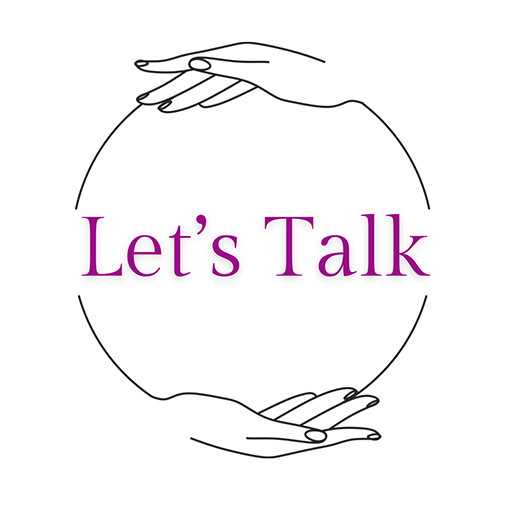Breaking the Silence: Embracing Mental Health and Well-being
Hi, friends! Welcome to my blog—a cosy corner where we talk about the things that matter most. Today, I want to take a moment to sit with you and chat about something close to my heart: mental health and well-being. Let’s face it—life can be tough, and sometimes, we all feel like we’re navigating it alone. But here’s the truth: you’re not alone. Let’s walk through this together.

Why Mental Health Matters
Around one in six adults in England have a common mental health disorder, and around half of mental health problems start by the age of 14. The proportion of young people estimated to have a probable mental disorder rose between 2017 and 2022, following the COVID-19 pandemic. But here’s the thing—mental health isn’t just about illness. It’s about how we think, feel, and act every single day. It’s about the way we handle day to day stress, how we connect with others, and how we show up for ourselves.
The World Health Organization (WHO) defines mental health as a state of well-being where we can cope with the normal stresses of life, work productively, and contribute to our communities. It’s not just about surviving—it’s about thriving. And that’s something we all deserve.
Breaking the Stigma Around Mental Health

Let’s talk about the elephant in the room: stigma. For far too long, mental health struggles have been misunderstood, judged, and swept under the carpet. But here’s the truth—mental health challenges are nothing to be ashamed of. They’re human. They’re real and something we can overcome by seeking some support.
When we open up about our struggles, we pave the way for others to do the same. Vulnerability creates connection, and connection creates change. That’s why awareness and empathy are so important. Together, we can break the stigma and create a world where seeking help is seen as a brave, empowering act.
How to Boost Your Mental Health: Small Steps, Big Impact
Taking care of your mental health doesn’t have to be complicated. In fact, it’s often the small, intentional steps that make the biggest difference. Here are a few tips to get started:
- Practice Self-Care: Self-care isn’t selfish—it’s essential. Try mindfulness or meditation to calm your mind. Move your body in ways that feel good for you, whether it’s a walk-in nature or a dance party in your living room. Fuel your brain with healthy foods and give yourself the gift of good sleep.
- Build a Support System: Surround yourself with people who lift you up. Whether it’s friends, family, or a support group, having someone to talk to can make all the difference.
- Seek Professional Help: Sometimes, we all need a little extra support—and that’s okay. Therapists and counsellors are trained to help you navigate your journey. Asking for help isn’t weak; it’s one of the strongest things you can do.
Supporting Others: Be the Light in Someone’s Darkness
If someone you care about is struggling, you might wonder how to help. Here’s where you can start:
- Listen Without Judgment: Sometimes, the best thing you can do is simply be there. Let them share their feelings without interrupting or offering unsolicited advice. Just being present can mean the world.
- Encourage To Seek Help: Gently suggest they reach out to a professional. Offer to help them find resources or accompany them if they feel nervous. Let them know they’re not alone.
- Take Care of Yourself Too: Supporting someone else doesn’t mean neglecting your own well-being. Set boundaries, practice self-care, and remember—it’s okay to say no if you need to.
A Personal Note: My Journey with Mental Health
As a former dentist turned filmmaker, I know first-hand how challenging it can be to navigate life’s twists and turns. Moving across continents, changing careers, and embracing my creative calling meant confronting fears, doubts, and setbacks. There were moments when I felt lost and uncertain, but it’s in those vulnerable moments that I grew the most.
What I’ve learned is this: Strength isn’t about pretending to have it all figured out. It’s about having the courage to say, “I need help.” Vulnerability isn’t a weakness—it’s an act of self-acceptance. And when we share our stories, we give others permission to do the same. We remind each other that being human means being imperfect—and that’s okay.
Let’s Walk This Journey Together
Mental health is a deeply personal journey, but it’s one we don’t have to walk alone. Whether you’re struggling or supporting someone else, remember this: small steps can lead to big changes. Start by being kind to yourself. Speak openly about your challenges. And most importantly, know that it’s okay to ask for help.
We’ve all been conditioned to put on a brave face, to “stay strong” no matter what. But real strength lies in the courage to say, “I’m struggling.” It’s in those moments of vulnerability that we find connection, healing, and growth.
So, let’s break the silence. Let’s break the stigma. And let’s remind each other that we’re all in this together.
Resources for Support
Here are some valuable resources to help raise awareness about mental health:
- Mental Health UK: They offer a variety of downloadable guides and tools, including conversation guides, wellbeing plans, and stress management resources1.
- Health in Mind: This organization provides a wide range of resources, such as guides on coping with financial stress, understanding anxiety, and student mental health2.
- Every Mind Matters: Part of the Better Health campaign, this initiative offers resources aimed at raising awareness and providing guidance on mental health issues3.

